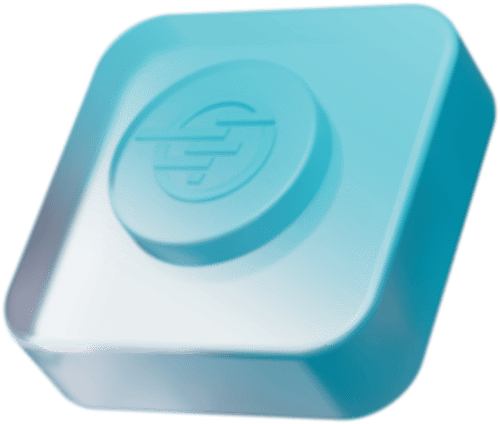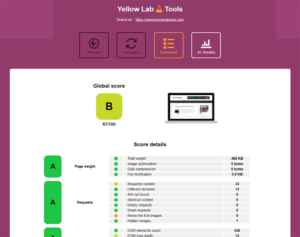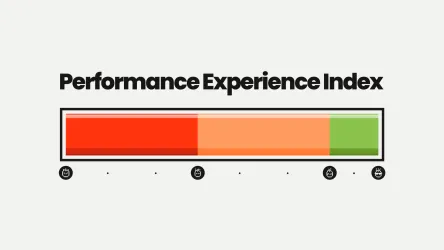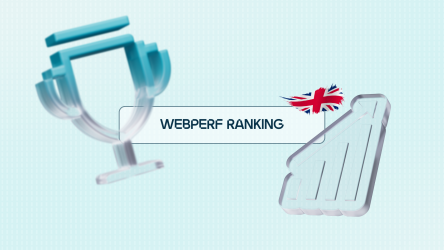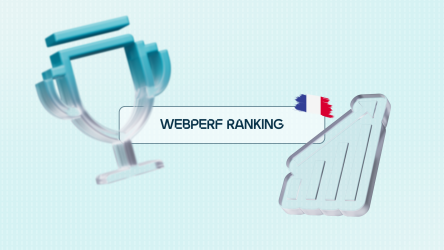We’ve already mentioned it in our article on the essential tools for analyzing your website’s performance. Yellow Lab Tools is a free, open source webperf monitoring tool created by Gaël Métais. It enables you to test a web page and detect performance and quality problems in front-end code. The public instance recently exceeded 300,000 tested pages.
We’ve always liked this tool, and use it regularly to audit our customers’ sites. Today, we’re happy to support this project by hosting Yellow Lab Tools, and to work with Gaël on a long-term basis as part of our R&D.
We’d like to take this opportunity to interview Gaël, this webperf expert on the move around the world.
Gaël, can you tell us a little about yourself?
 I’ve been interested in Webperf for about ten years, and took the plunge four years ago when I went freelance. I usually help companies by working on detecting where their sites are slowing down and implementing the latest optimization techniques. But being a freelancer has also freed up my time to launch various open-source projects, linked to web acceleration of course. The most successful of these is Yellow Lab Tools. A new adventure is starting today, as Fasterize has asked me to work on new features for their optimization engine, a project I find particularly motivating.
I’ve been interested in Webperf for about ten years, and took the plunge four years ago when I went freelance. I usually help companies by working on detecting where their sites are slowing down and implementing the latest optimization techniques. But being a freelancer has also freed up my time to launch various open-source projects, linked to web acceleration of course. The most successful of these is Yellow Lab Tools. A new adventure is starting today, as Fasterize has asked me to work on new features for their optimization engine, a project I find particularly motivating.
In your opinion, what are the key features of Yellow Lab Tools?
Yellow Lab Tools analyzes a web page and checks some fifty best practices. Are files properly compressed? Images optimized? Fonts adapted to the web? Are JS and CSS not too complex? Are cache headers well specified? But what I think is most important is that the tool makes judgments. For example, few developers would know at what weight a page should be considered too heavy. That’s why Yellow Lab Tools clearly states: “Be careful, this page is 4MB, it’s really too much!”
What subjects are you planning to work on at Fasterize?
The first area I’m working on is estimating a device’s connection quality, to pave the way for a new type of optimization. For example, the site could be served without fonts on the slowest devices, images more compressed, ads deactivated or simplified…
What do you like about working with Fasterize?
Personally, I can’t think of anything more stimulating than working on R&D projects. What’s more, I really like the idea that the addition of an optimization can spread to hundreds of sites and impact millions of users all at once. Last but not least, Fasterize has suggested that some of the libraries and tools we’ve developed should be published under an open-source license, which is a great added incentive!
In your opinion, what are the next webperf optimizations that will become indispensable for all websites?
Indispensable, I don’t know, but in my opinion the technologies are ready for a major improvement in caching techniques. Services Workers, in particular, open up a whole range of possibilities that are not being exploited. I’m very hopeful that the tooling will improve rapidly and enable its use to be democratized.












